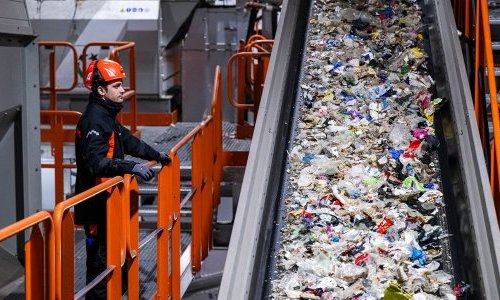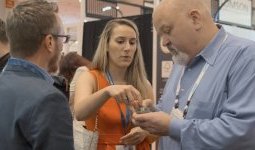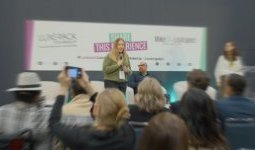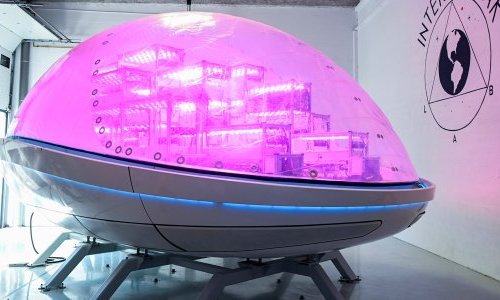When they created CoZie (Cosmétique Objectif Zéro Environmental Impact), 3 years ago, the three young entrepreneurs - Arnaud Lancelot, Émeric Baracat and Louise Salvati - wanted to fully exploit the clean beauty concept, well beyond formulas. "This required to also work on the pack and, in our opinion, the most effective solution was the waste that we don’t generate, and therefore to have the possibility of refilling empty packagings. An idea put forward by Louise who is a zero-waste influencer," explains Arnaud Lancelot.
But to be achieved, this indeed virtuous idea, had to overcome a set of major challenges: an unprecedented initiative in the personal care segment, a non-existent distribution technology at the time, the necessary consideration of the microbial development risk criteria, regulatory compliance, adequacy with POS, packaging management… "For this type of product, a complete mastery of safety and traceability issues was needed. So we decided to create everything ourselves from scratch. Our idea was to recreate a mini lab at the POS, respecting good cosmetic manufacturing practices, in the same way as in an industrial site," describes the co-founder.
A technology like non other worldwide
Two years were necessary for the development phase, led by Émeric, an engineer by training and with a 10-year career in a large cosmetic group, supported by different engineering offices. But down the road, the challenge was successfully met: this patented equipment, like non other worldwide, encompasses a number of technical solutions to protect the formula from air, light and dust. "There is no contact between the product and the outside: it goes directly from the machine to the bottle," confirms Arnaud Lancelot, thereby guaranteeing a product protection, against any risks of bacterial contamination.
This "Dosing" device not only brings together a set of dedicated fountains to deliver the 9 product references of CoZie, but once the refill is completed, it also prints a specific label with the batch number, the best before date and the volume chosen by the customer. "Our machine is also connected, which allows us to collect and centralize all the data on a server, to ensure traceability in the event of a problem. We know where and when a given batch number was sold," added the entrepreneur.
Exchanged bottles
Another issue to solve, was the cleanliness of glass bottles before refill. A responsibility which, in the opinion of the founders, lied with the brand. The solution found to rule out all risks: the bottle deposit. Each bottle is brought back by the customer who is given a new empty and clean bottle, which is filled with the desired quantity, with a reduction of 1.5 euros in the product price. "Across the country, we have set up an industrial washing loop. All the used bottles recovered are sent to one of our washing centres where all cosmetic hygiene conditions are met: the bottles are washed, dried and re-labelled." While multi-material pumps are directed to a specific and dedicated recycling channel. "It is impossible to wash these pumps on an industrial scale. We have sought for solutions from suppliers, without success to date," notes Arnaud Lancelot.
A simplified experience
From the retailer’s point of view, the operation is almost neutral. The machine, which uses little space, only needs to be installed, connected and refilled. No maintenance is required and the machine is operated by the consumer. The brand already owns 49 machines mainly installed in organic stores and zero waste stores, with the aim of accelerating the supply to new pharmacies and beauty networks in the coming months.
An industry-wide ambition
Today, the three founders intend to share their concept with other players in the industry. A first experiment was successfully carried out; it consisted in assisting the Beauty Kitchen brand in the U.K. "At first we provided advice. This refill system raises many technical and legal issues among other, which we went through. This allows saving a lot of time. Then, we supplied the machine, custom designed for the brand, on a Private Label mode," describes Arnaud Lancelot.
Building on this success, the team will assist two other major French brands next March, for new launches of cosmetic refills.
Consumer demand
Still relatively confidential, in the sphere of beauty, the solution of refillable cosmetic products in POS is nonetheless slowly but surely winning over new consumers. Among the pioneering players, the brand of natural products, Panier des Sens, has been testing the system since 2016 in its 3 stores, for its flagship reference, its liquid Marseille soap. "It is a fairly complex project to set up. We developed it more out of conviction than out of interest, but today demand is increasing," admits Aurélie Muntaner, Marketing Director.
More recently, L’Occitane has launched an experimental fountain device for three of its shower gel references in several of its retails stores.
With CoZie, the approach is now reaching a new segment. "We have a 40 to 60% rate of bottle returns, which is very high for a small brand like ours and shows that there is a real desire for re-purchase. This experiment encourages strong customer loyalty and things are actually going faster than we had thought," highlighted Arnaud Lancelot.





























